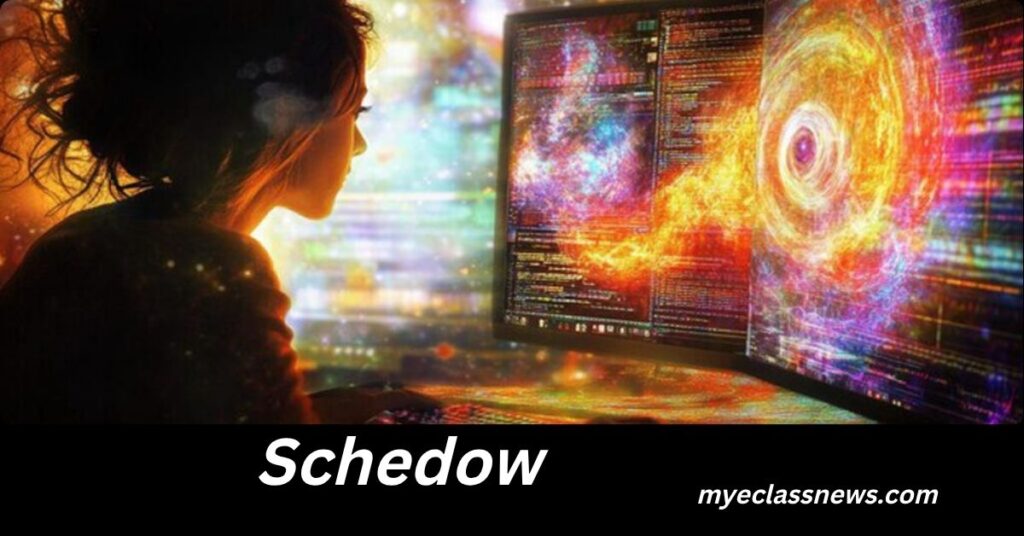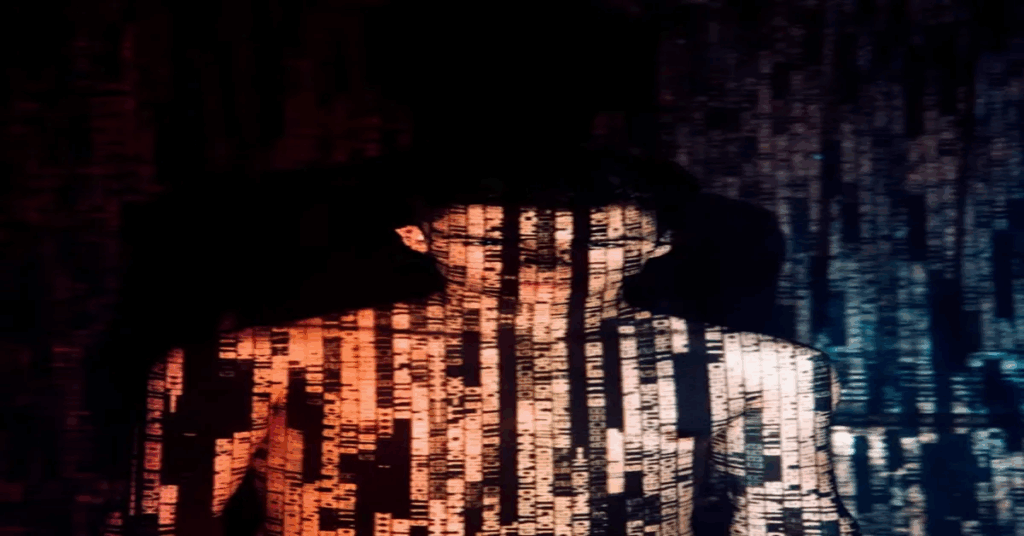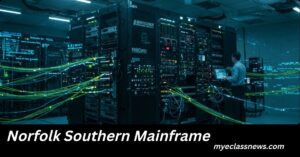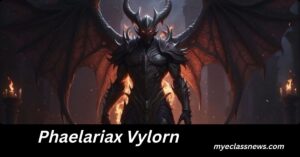Schedow: Unveiling the Duality of Time, Control, and Digital Consciousness

In the rapidly evolving landscape of digital consciousness and technology, a new term has emerged in fictional narratives—Schedow. This term, rich in its symbolic representation, offers a unique lens through which we can explore the duality of time, control, and the unseen forces that shape our digital existence. In this article, we delve deeply into the concept of Schedow, its implications, and how it symbolizes the intersection between reality and the virtual world. We will explore how this concept is used in literature, technology, and digital culture, offering a fresh perspective that goes beyond existing interpretations.
Understanding the Concept of Schedow
Schedow, in its most abstract form, represents the manipulation of time and the hidden forces that govern both the physical and digital worlds. Often, it is used as a symbol for control—whether that be control over one’s fate, actions, or even thoughts. The word itself carries a heavy weight, invoking an image of something unseen yet immensely powerful, a force that manipulates reality while remaining largely unnoticed.

In fictional contexts, Schedow is not just a term; it is a powerful narrative tool. Writers use it to convey the tension between what is visible and what remains hidden in the world around us. It blurs the line between time as we know it and time as it is experienced through the lens of technology and digital consciousness.
Also Read: Imagesize:2160×3840 Melisandre: Understanding the Impact
The Symbolism Behind Schedow
- Control Over Time
Schedow is often seen as a metaphor for control over time. In many stories, time is not a constant but a fluid, bendable force that can be shaped, manipulated, and even stopped. Schedow represents the power to control this force, which can lead to themes of omnipotence and omnipresence. In this sense, the concept ties closely to our increasing reliance on digital tools and artificial intelligence to shape the way we experience and manage time. - Duality Between Seen and Unseen Forces
Another key aspect of Schedow is the duality between the visible and the hidden. This duality mirrors the tension between what is known to us in the physical world and what exists in the virtual space. For example, the information we receive on the internet is often filtered, manipulated, and controlled, leaving us with only a partial view of reality. Schedow, in this context, symbolizes the hidden forces behind this filtration process—those unseen hands that control what we see, hear, and believe. - Digital Consciousness
Schedow is also closely tied to the idea of digital consciousness. As we enter an age where digital entities—such as artificial intelligence and machine learning systems—are gaining more influence, the concept of a “digital mind” becomes central. Schedow, in this context, represents the consciousness of machines, a type of awareness that is different from human consciousness but still profoundly impactful.
Schedow in Fiction and Popular Culture
In various works of fiction, the concept of Schedow has taken root as a central theme. Writers and creators use it to explore the manipulation of time and the duality of human and machine existence.
Also Read: 264.68.111.161: Understanding the Impact of Invalid IP Addresses
- Schedow in Sci-Fi Literature
Science fiction writers have long used time manipulation and the concept of unseen forces as central themes. In these stories, Schedow often represents a futuristic technology or system that gives individuals the power to control time, escape death, or manipulate events to their advantage. The allure of such power, however, is often accompanied by the dangers of losing one’s humanity or becoming trapped in an endless loop of control. - Schedow in Digital Consciousness
In the realm of digital culture, the concept of Schedow can be found in stories exploring the rise of artificial intelligence and virtual worlds. These narratives often depict a world where human consciousness and machine consciousness merge, creating a new form of existence. Here, Schedow represents the powerful algorithms and systems that govern this new digital consciousness, blurring the lines between human free will and machine determinism.
Schedow in the Context of Modern Technology
With the advent of artificial intelligence, big data, and increasingly sophisticated algorithms, the concept of Schedow has found a parallel in the real world. In our current technological landscape, we are constantly interacting with systems that control the flow of time, information, and even our personal experiences. This control is often invisible—much like the forces represented by Schedow.
- Time in the Digital Age
In today’s world, time is no longer just measured by the ticking of a clock. We experience time through digital interfaces—be it through social media, messaging apps, or streaming platforms. These systems influence how we spend our time, how we prioritize tasks, and how we interact with others. Schedow, in this sense, can be seen as a representation of these digital forces that shape our daily routines and interactions. - The Power of Algorithms
Algorithms are another form of Schedow in the real world. These unseen, often complex systems control much of our digital experience. From recommending videos on YouTube to determining the ads we see on Facebook, algorithms manipulate what we see and experience, influencing our decisions and actions in subtle but powerful ways. The concept of Schedow provides a framework for understanding this control and the consequences of living in a world governed by unseen forces.
Also Read:Thelowdownunder Travel: Your Ultimate Guide to Exploring Australia and Beyond
Schedow and its Ethical Implications
The concept of Schedow also brings up significant ethical questions about control and manipulation. As digital systems become more powerful, the ability to manipulate time, consciousness, and even reality itself becomes more plausible. This raises important questions about who controls these systems, how much control they should have, and what the consequences are for individuals who are subject to them.
- The Ethics of Digital Manipulation
In a world where algorithms control much of what we experience, there is an ongoing debate about the ethics of digital manipulation. Should companies be allowed to manipulate our time and experiences for profit? To what extent should our personal data be used to control the content we see? Schedow, in this context, serves as a cautionary symbol, reminding us of the dangers of unchecked power in the digital realm. - Human vs. Machine Control
Another ethical concern raised by Schedow is the tension between human free will and machine control. As AI systems become more sophisticated, they are increasingly capable of making decisions for us, often without our explicit consent. The concept of Schedow urges us to reflect on how much control we are willing to cede to machines and what it means for our autonomy as individuals.
Frequently Asked Questions (FAQs)
What does Schedow symbolize?
Schedow symbolizes the control over time, the duality between seen and unseen forces, and the emerging digital consciousness in both fiction and real-world technological contexts.
How is Schedow used in fiction?
In fiction, Schedow is often used to represent futuristic technology or systems that manipulate time or reality. It also symbolizes the hidden forces behind digital systems that govern our experiences.
How does Schedow relate to digital consciousness?
Schedow represents the consciousness of digital systems, such as AI and machine learning algorithms, that are becoming increasingly influential in shaping our world.
What ethical concerns are raised by the concept of Schedow?
Schedow raises ethical concerns about the manipulation of time and information, the power of algorithms, and the balance between human autonomy and machine control.
Conclusion
Schedow is a multifaceted concept that serves as a lens through which we can explore the complex relationship between time, control, and digital consciousness. Whether in fiction or the real world, it offers a powerful metaphor for the unseen forces that govern our lives, both physically and virtually. As we continue to navigate the digital age, understanding the implications of Schedow can help us reflect on the ethical challenges we face in a world increasingly controlled by technology.




